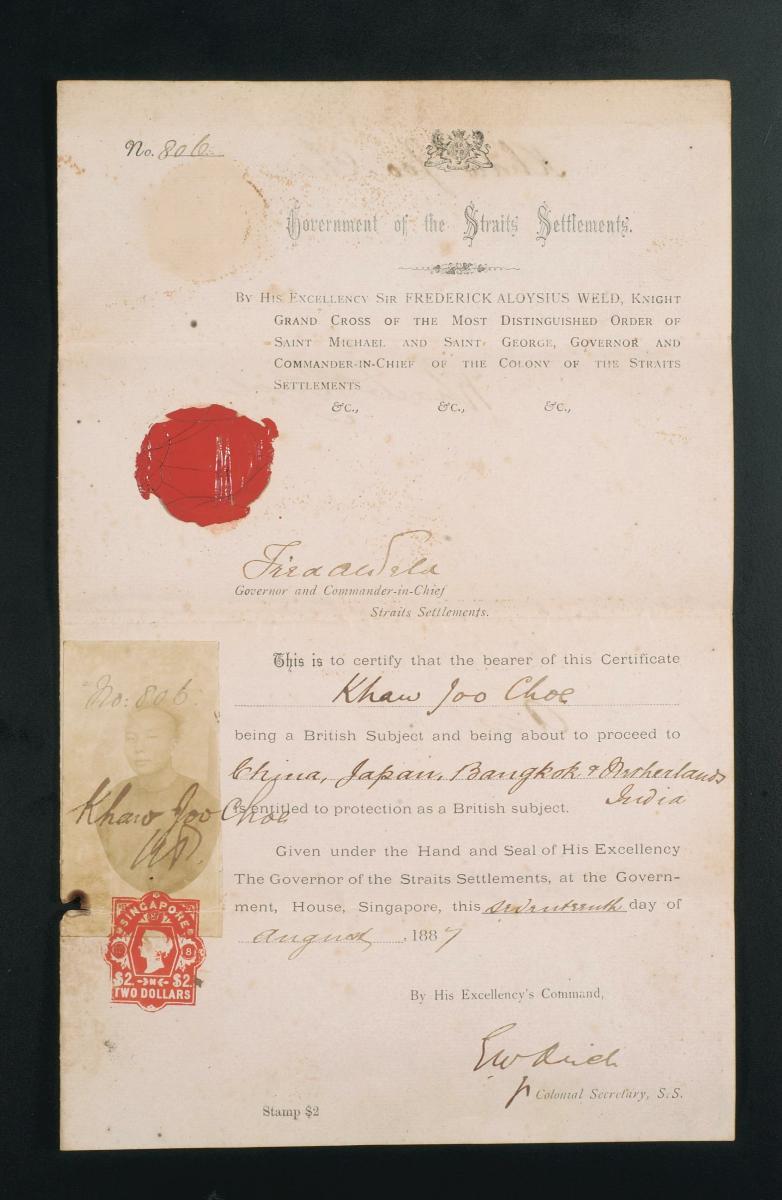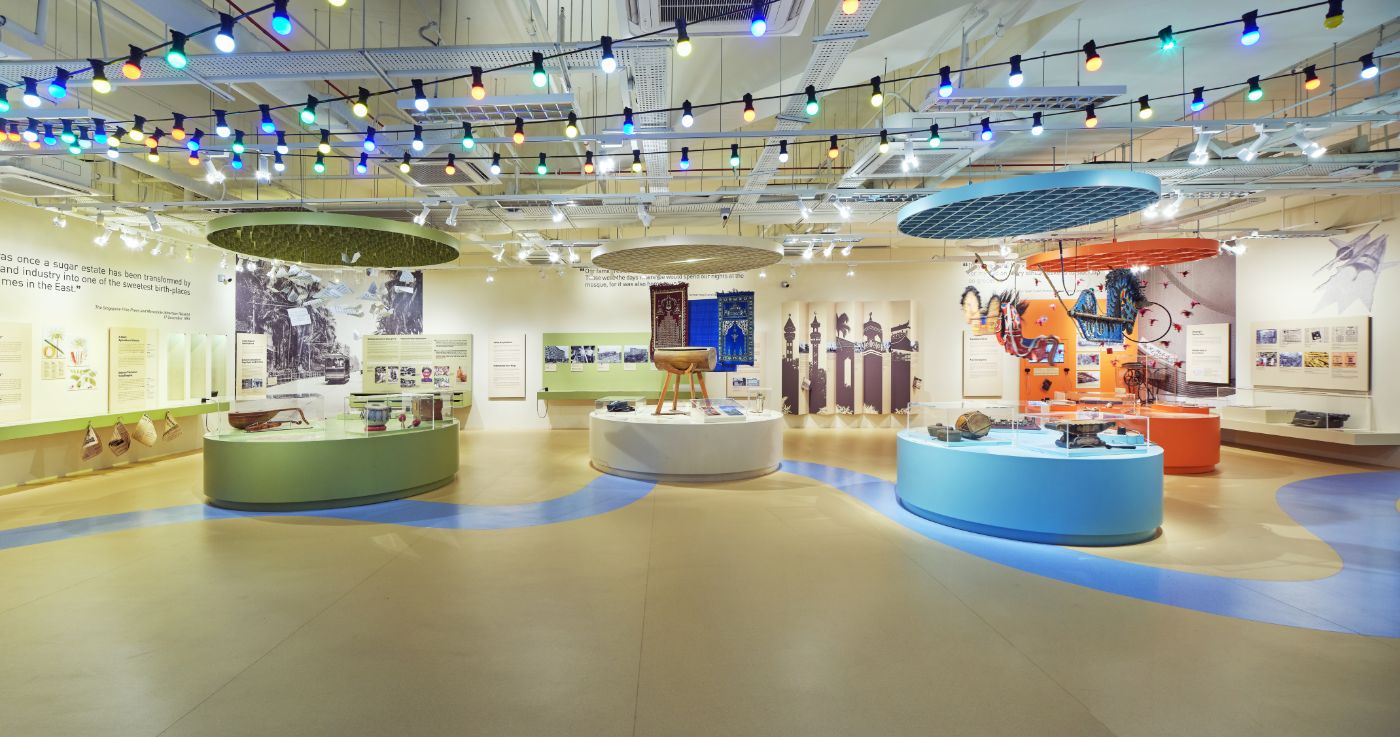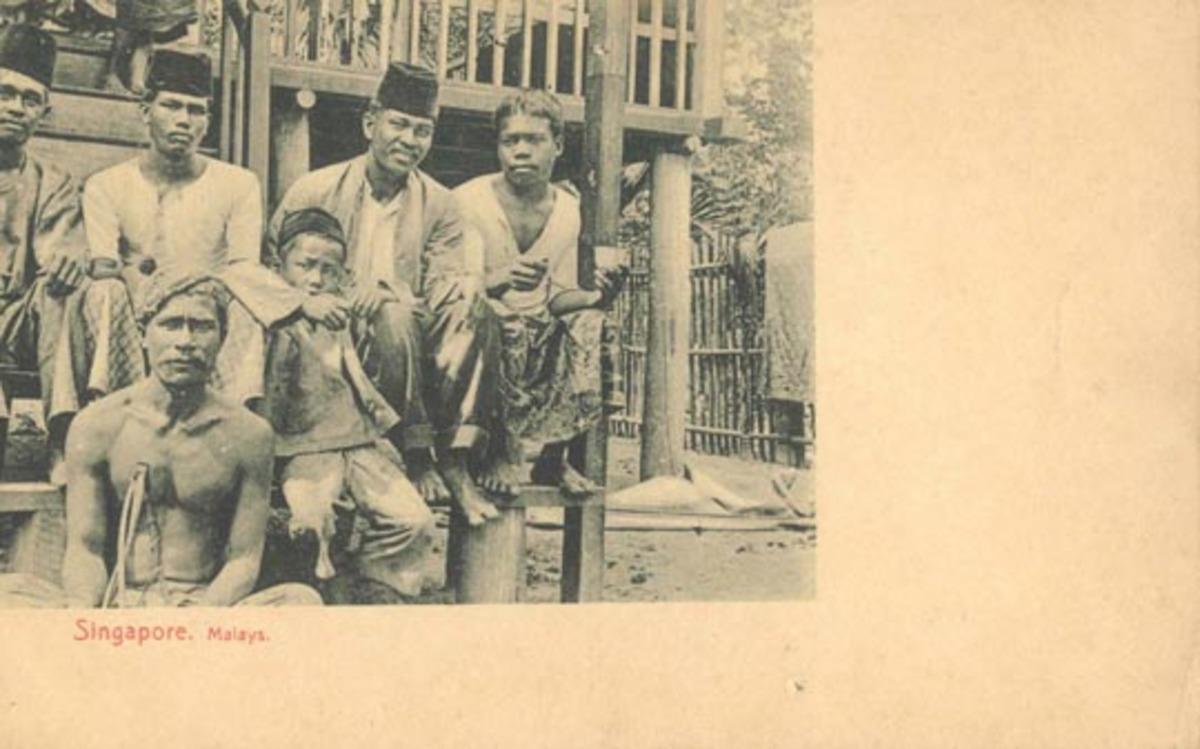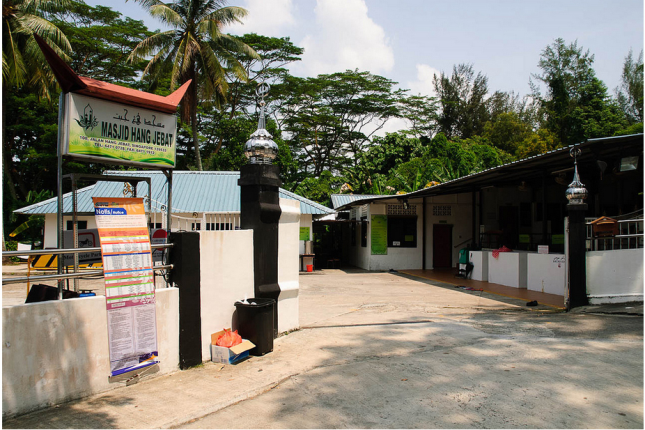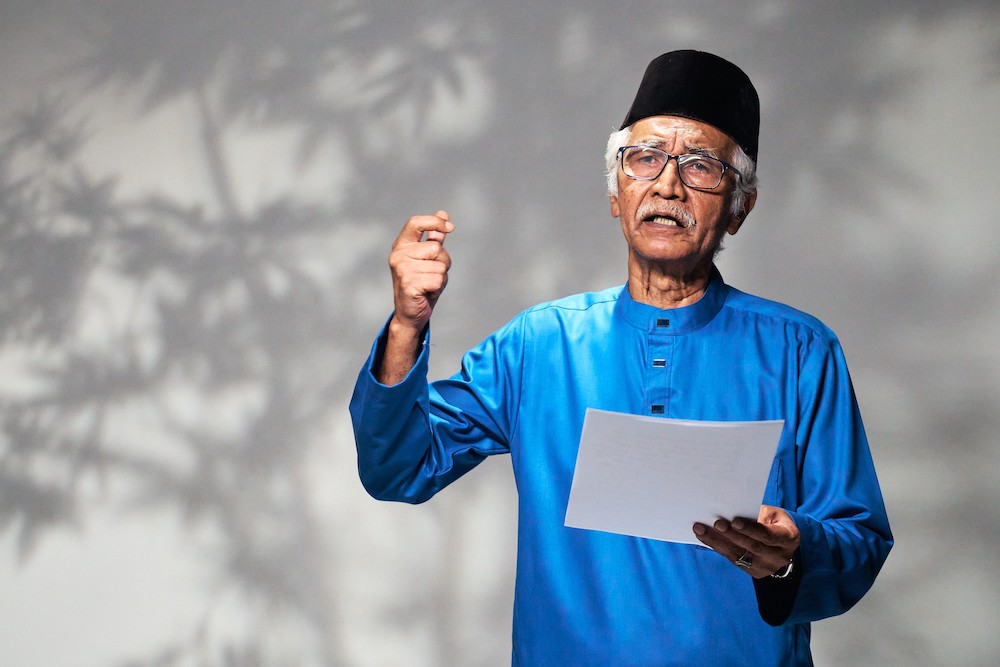Object size: 17.2 x 21.4 x 0.5 cm (Open)
Singapore, along with Penang and Port Sweetenham in Klang, served as important embarkation and disembarkation points from 1786 (for Penang) and 1819 (for Singapore) for ships carrying Muslim pilgrims to Jeddah. This journey, known as the Hajj (or Haj), is a pilgrimage to various holy sites in Makkah and Madina (in Saudi Arabia) and forms the fifth pillar of Islam that Muslims are encouraged to practise at least once in their lifetime if they had the financial and physical means to do so.Between the 18th-century and 1970s, travel to Makkah and Madina from Southeast Asia was undertaken via ships that plied existing maritime trade routes between the Malay Archipelago and Arabia. The onset of colonialism did not hamper these journeys: on the contrary, both the Dutch and British colonial administration, being barred entry from Makkah and Madinah, saw value in administering the Hajj journey as a means of documenting indigenous knowledges. This Hajj pass from the 1970s, belonging to a 71-year-old (at the time) male pilgrim named Ngah Bin Haji Long, was actually introduced into the Straits Settlements and Federated Malay States by the British administration in 1926. The role of the Hajj pass is to document the pilgrim's physical appearance, health as well as outgoing and incoming movements. Mundane information like the pilgrim's appearances, health and movement was actually critical to the British government in monitoring what they saw as an uncontrollable, unprecedented traffic of people carrying potential medical and also political threats in and out of the region. Made in the 1970s, this pass was already being administered by the Malay Peninsula's predecessor to the colonial Hajj Bureau, known as the Tabung Haji (Hajj Fund), but it retained many similarities. At this time in the 1970s, pilgrims from Singapore still joined the same Hajj ships that pilgrims from Penang (like this particular pass holder) and Klang took to go to Jeddah. The pass also documents such information as the hired hajj broker (often from Penang or Singapore as well) and the mutawif (guide) in Arabia.








